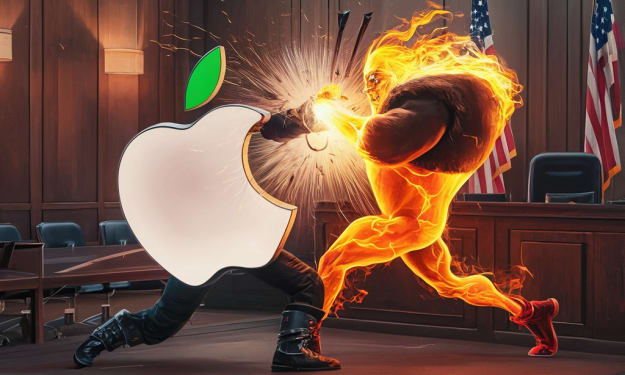
In our generation, technology has rapidly changed, giving us the ability to communicate, multitask, and so much more. It expanded its accessibility of computers, phones, and software from offices, to our homes and now in our own hands. However, technology has been used in many ways that both good and bad. Laurie Penny, a journalist, writes about the idea of having the internet and what it was used for throughout history. In her journal article “Cybersexism,” released in 2014, she talks about her experience of becoming a writer without the internet and how people threaten each other online. She believes that the internet is not “free” and that the internet is not for everybody because women are being discriminated against online. Emily Witt is a journalist who wrote on her experience based on dating and relationships. In her magazine article “Love Me Tinder,” released in 2015 from her book Future Sex, she talks about how Tinder became a popular sensation. She takes on a neutral perspective of dating apps and how they impact relationships, dates, and hook-ups by comparing other people’s experiences, in how they use various dating apps, and other users. She wants us to view the use of social media apps like Tinder, Grindr, and many others as a normal activity. Zoe Bernard, a tech reporter, discusses the start of developed technology and its influence on our culture. In her business article, “Here's how technology is shaping the future of education,” released in 2017, she talks about how technology influences and shapes our educational world. She believes that technology plays a big role in education because it allows us to accommodate learning styles when people adapt to technology and it also enhances the teacher’s roles in the classroom environment. Amir Talaei-Khoeia and Jay Daniel are two university students who are studying how technology can impact the effects of cognitive abilities. In their journal article, “How younger elderly realize usefulness of cognitive training video games to maintain their independent living,” released in October 2018, they hypothesized that through video game technology the elderly can remain independent by improving their cognitive abilities. In this paper, I will be discussing, analyzing and connecting arguments about technology and its impact on people from various and perspectives. I will also be discussing my thoughts and perspectives on technology and its current state in 2019.
Penny says that the internet is not for everybody because it creates discrimination towards women. For example, she states, “Sexists trolls, stalkers, mouth-breathing bedroom misogynists: all of them attack women out of hatred, in part, for the presence of women and girls in public space, which is what cyberspace remains, for now (260)”. She’s saying that women are being attacked by those who hate the presence of women and their presence in the general public. By doing this, she is showing that there are threats in public areas that could lead to similar threats online.
She also claims that the internet is not “free” because its affecting the freedom of speech. She argues that “The internet has pressing, urgent problems with freedom of speech, and none of them have anything to do with men’s rights to harass and threaten women with impunity… Everywhere, people in positions of privilege warp and misuse the idea of ‘free speech’ to shut down and silence everyone who speaks freely” (268). In other words, the problem with the internet is that most people misuse the idea of freedom of speech which takes the right of those who want to speak freely. She’s making the reader believe that there is a consequence to the use of free speech on the internet.
Witt uses experiences to show the impact of dating apps and how they affect relationships. For example, she states, “I talked to a European who uses Tinder while I travel to work. ‘I noticed that when I was in the midwest that girls were more approachable’ he said” (276). She also uses another person’s experience and says that “Eli is pursuing a sexual narrative that doesn’t end in closure, that doesn’t bear the expectations of gendered rituals...Tinder will be the app for the never-ending present, for the idea of one’s life as not culminating in a happy ending but a long series of encounters, sexual or otherwise” (280). She uses actual user responses to show that people use dating apps as a way for users to increase their social activity.
She also compares the user experience of using Tinder to other apps such as Gindr, OkCupid, and other dating sites or apps. For example, she describes Sarah as a person whose online presence seems normal to herself and everyone else. She uses dating websites/apps such as HowAboutWe, Grouper, and OkCupid, but she was mostly attracted to Tinder because she didn’t need to provide her own information. She also uses OkCupid because of self-presentation, and choosing the people that she wants to choose to talk to (278). This means that dating websites portray how a person wants to be defined online. Witt uses this comparison to show that people use dating apps as a way to create good impressions of themselves so that others view the person the same way and create a relationship with the person.
Dating apps, portrayed by Witt, seem well thought out because it shows how much we use technology and social media today. She understands how it has affected the way we perceive ourselves and others not just through images but also first impressions because the moment we tend to open ourselves online, we could be exposed in a good or a bad way. In Witt’s perspective, her strengths mostly go towards the cultural and the ethical aspects of modern technology because she discusses the idea of social media usage such as dating to see how the world interacts with one another. She extends her perspective from Laurie Penny’s argument because Penny believes that the internet should be free and should be used to express ourselves however we like to. In addition, Witt wants us to think that by expressing ourselves we can create more social interactions with people outside of our comfort zone.
Bernard says that technology and software is helping students adapt to various learning styles while enhancing their education. She states, “Technologies like DreamBox, a math education software that's used in a number of classrooms across the US, adapts to each student's skill level and lets students learn at a pace best suited to their needs. Adaptive learning software is quickly replacing the role of textbooks in the classrooms and students are tackling subjects with the aid of tailor-made computer programs that assist their needs.” In other words textbooks are being replaced by technology and software because they let each student adapt to to their pace that is at their skill level. She is doing this because she wants us to understand that technology is probably going to replace most obsolete items, but it’s not going to replace everything.
She also believes that as technology is improving and evolving, the roles of teachers will become more crucial than they were back in the 1970s. She quotes CEO of Silicon Schools Brian Greenberg stating, “‘Technology is important, but it's really just the means to an end,’ Greenberg said. ‘The real magic is in giving great educators freedom and license into how school works.’” In other words, it gives educators the access to see how their students are improving and what each individual student needs to work on. It’s important because Bernard wants us to see how teaching can impact a student’s learning when they adapt to technology.
This perspective on technology extends from Witt’s perspective because technology and software let people interact with each other and therefore it lets us adapt to however each individual likes it. She clearly demonstrates her understandings in the technological culture of education because she describes how technology was built and how it has advanced into our generation of education. She also uses interviews to gain people’s perspectives on education and technology. One weakness that occurs in this is how there aren’t many negatives to how too much technology and software could take away the roles of textbooks and other materials needed. The problem with having a lot of technology is that, even though we adapt to tech and software to help us improve our abilities, it impacts how we learn because people learn differently. Sometimes, students would rather write their assignments or have a physical copy of a book than to have or write something on a device.
But technology doesn’t just help us in education, it also helps improve our own capabilities. Talaei-Khoei and Daniel use the idea of the transfer effect which allows the elderly to develop cognitive abilities as they are training. They tested this theory in an experiment where the elderly were introduced to an Xbox Kinect game where each individual would practice until they were comfortable playing it. After a 5-minute rest, each person was assigned a username and password and after the each of the sessions, each of the participants were given a memory age, which determines the value based on their daily life capabilities (4). Testing the transfer effect was to show the capabilities of people older than 60 years old. More importantly, the experiment lets us understand that technology has helped us improve our capabilities that we use every day.
The idea of cognitive capabilities from video games also lets us see how it affects their independent living. The results in the experiment showed some of the possibilities and influences on each of the participants, whether it’s their characteristics, opinions, or their values. It seems that due to a certain setting and how they live, the memory age from 85-year-olds and younger have an age range from 11 to 17. By having some gaming experience it creates benefits for the elderly and making technology the key factor to improving their capabilities (5-6). This reason why technology is key is because it shows the lack of physical abilities the elderly tend to have as they age, but with the influence of video games it increases their performance.
This perspective of technology extends from Bernard’s argument because the study proves that technology can influence how a person can adapt and improve their abilities using software just like how students adapt to software to learn. Some of the strengths in this study involve the logical aspect of technology and what it can do to us. They also address their ethos by using their research on video games and cognitive abilities to prove that there is a positive relationship. The weakness to this study is that it doesn’t show how people could be negatively impacted by video games. Overall the study is well organized, provides a lot of evidence, and backs up their claims using their sample size to show the impact of video game technology and cognitive skills.
In this paper, I have analyzed and discussed how technology has impacted our society using examples of people’s experiences with social media, video games, and other forms of technology. Laurie Penny talks about her experiences of being a writer and believes that the internet isn’t a safe place because of discrimination and it has a negative impact on free speech. Emily Witt talks about social media and social interaction on various dating apps such as Tinder and takes on a neutral perspective on these apps using her experiences but also other people’s experiences as well. Zoe Bernard believes that technology can create a positive influence on education because it can help students develop different learning styles and makes the teacher’s role more important as technology advances. Amir Talaei-Khoeia and Jay Daniel believe that technology and video games can help improve cognitive skills on the elderly because of the transfer effect and how the transfer effect impacts the elderly. So how do I feel about technology? Technology has come a long way through its physical and software development development. It has a big impact on the way we use it to express ourselves, how we use it, what individuals can learn and develop from it, and how we can prove our own abilities through it. I feel that technology, based on previous authors, not only extends ourselves but it also contradict us because even though technology has qualities that lets us express and improve ourselves they have negative consequences that tend to shift our perspectives from the influence of others. Overall, technology has a big role in our lives and it still does. It gives us the ability to do even more work than we can’t do ourselves, it’s being used in most places and it helps us accomplish tasks everyday just like this essay.
About the Creator
DNQ
Hi, my name is DQ. I'm a student going to San Diego State University and I major in Computer Science. I love playing video games, work out, hang our with friends and family, and make YouTube Videos.






Comments
There are no comments for this story
Be the first to respond and start the conversation.